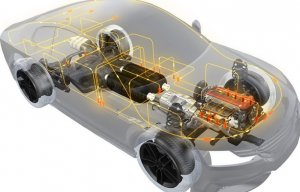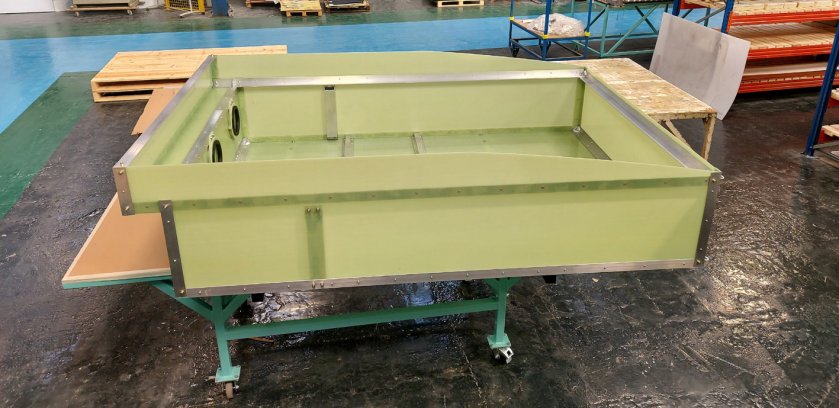
Two-part DSM design for hydrogen storage
Composite alternative is half the weight of standard steel and aluminium structures.

20th July 2021
Innovation in Textiles
|
Bristol, United Kingdom
The National Composites Centre (NCC), based in Bristol, UK, in collaboration with London-based Arcola Energy and Glocester-based advanced composites manufacturer Permali, have developed a low-cost composite storage structure for hydrogen fuel cylinders that can be retrofitted to existing commercial buses, enabling the switch to a clean energy source and reducing the emissions of large vehicles in the UK.
Funded by the Office for Zero Emission Vehicles (OZEV) through the Niche Vehicle Network, the project team has proved that a storage structure manufactured using composite materials is viable, meeting cost and weight targets to make the component commercially viable, as well as creating a design that meets road requirements and can be implemented rapidly.
The team has halved the weight of the structure that is currently made from steel and aluminium with its composite alternative – from 200kg to 100kg. It also increased the energy storage density by approximately 28%, from around 740Wh/kg to 950Wh/kg. Arcola Energy will now be introducing the structural system to its bus applications.
In 2018, 2.3 billion miles were driven by buses in the UK, with other commercial and heavy goods vehicles covering 68.1 billion miles. Given that road pollution accounts for approximately 20% of the UK’s emissions, enabling large vehicles to switch to a clean energy source such as hydrogen is critical to revolutionising public transport and achieving the net zero targets set by the government.
Using Permali’s CE5 glass fibre material, the team of composites specialists developed a flat-pack modular solution, taking advantage of existing materials and capabilities within the supply chain to make a component that can be adopted by industry more affordably. An initial feasibility study for retrofitting the storage solution to other large vehicles, in this case a refuse truck, was also carried out.
The research indicated that with further development, more could be done to improve the weight and performance of the structure, reducing the overall weight of the vehicle, therefore lowering the centre of gravity and increasing fuel efficiency.
“By using materials and processes already available in the supply chain, we’ve developed a solution that can be rapidly retrofitted to existing commercial buses, with the potential for it to be deployed on other large vehicles,” said Alex Doyle, technology programme lead at the NCC. “This means that a major obstacle has been overcome and the move to a clean energy source can happen sooner rather than later.”

Business intelligence for the fibre, textiles and apparel industries: technologies, innovations, markets, investments, trade policy, sourcing, strategy...
Find out more